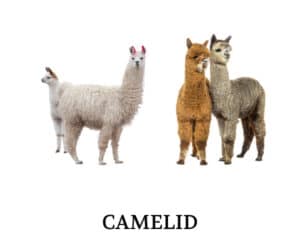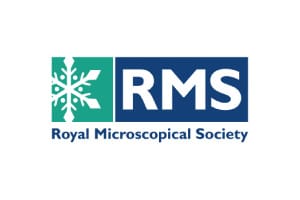Wormcount Tests for Camelids
Our worm count / faecal egg count (FEC) test for alpacas and llamas is designed to provide you with precise and reliable results. Our wormcount screen uses testing methods such as the Modified Stoll’s test to detect gastrointestinal parasite eggs and coccidia. This test is more sensitive compared to other test methods used in other labs. Our test reports gastrointestinal parasite eggs to a sensitivity of 5 eggs per gram (epg). With a high sensitivity of 5 epg, this offers a high level of accuracy in detecting and quantifying a wide range of parasites in your livestock.
The sensitivity of 5 epg means that even low-level infestations, which might go undetected by less sensitive tests can be identified early. This early detection is crucial in preventing potential health issues in your animals and allows for targeted intervention when needed.
Our wormcount test will report on a range of gastrointestinal nematodes, cestodes and protozoa . Our test includes Barber Pole Worm (Haemonchus contortus) and Emac (Eimeria Macusaniensis).

Further Information
Wormcount.com gives you direct access to a fast, professional veterinary laboratory without the need for a referral from your Vet.
Our laboratory has been purpose designed with bespoke equipment and facilities, allowing us to provide a professional and high-quality service direct to the public and veterinary practices. All of our analysts undergo rigorous training before they undertake any testing. Even once approved for testing, they undergo regular ‘blind’ spot-checks and ongoing external personal development sessions to keep them at the forefront of the industry throughout their careers. Our strict bio-security and method procedures ensure safe, repeatable and accurate results from every sample as they transit through the lab.
We have an excellent customer service reputation and our administration and support teams are very welcoming of any queries you have or support you require at any stage of the process. Once you have your results, we will discuss any further action that is required. This may include a visit to a pet shop, the vet, or no action at this time.
All tests are carried out in our dedicated laboratory by our skilled analysts. The process is easy, all you do is send in a sample of your Camelid’s faeces using one of our specially designed collection kits, we will then test the sample and issue you with a results report via email.
Our wormcount uses testing methods such as the Modified Stoll’s test to detect gastrointestinal parasite eggs and coccidia. This test is more sensitive compared to other test methods used in other labs. Our test reports gastrointestinal parasite eggs to 5 eggs per gram. Other tests not providing this level of sensitivity could potentially allow parasite burdens to go undetected. Our test allows for the detection of low burdens which is crucial in preventing potential health issues in your animals and allows for targeted intervention when needed. Our Worm Count Test includes standard screening for Barber Pole Worm (Haemonchus contortus) and Emac (Eimeria Macusaniensis).
The results are delivered straight to your inbox in an easy-to-understand email report. You’ll find a user-friendly key on your Wormcount.com result sheet, making it easy to interpret.
Regular screening is critical to knowing what is happening within your Camelid and allowing targeted treatment in a timely manner. In general, we would recommend undertaking testing 3 to 4 times a year.
Our test we help you understand the parasite burden your animals may carry and develop an effective deworming strategy tailored to their specific needs. Maintaining the health of your livestock is essential, and our Worm Count Test plays a vital role in achieving this goal. Regular alpaca worm counts are vital for healthcare, offering insights and reasons for responsible management:
- Parasite Management: Essential for controlling alpaca gastrointestinal parasites, worm counts identify infestations, enabling targeted treatments and reducing anthelmintic drug use.
- Health Monitoring: Detecting hidden symptoms, worm counts proactively monitor alpaca health. Early identification of parasitic burdens prevents severe issues like anemia, weight loss, and fatalities.
- Avoiding Drug Resistance: Worm counts determine anthelmintic effectiveness, crucial for preventing drug resistance. Informed decisions on deworming choice and timing preserve drug efficacy.
- Cost-Efficiency: A cost-effective approach to alpaca health, regular worm counts prevent unnecessary deworming expenses, reducing overall healthcare costs while ensuring animal well-being.
- Herd Health: Particularly valuable for larger herds, worm counts identify animals needing treatment, minimizing parasite spread and maintaining overall herd health.
*Fluke tests are not included in the Wormcount test but can be purchased separately.
Herd sampling is appropriate where animals of the same species, age and health live or graze together. If you are particularly concerned about one individual, we would always recommend they are tested separately from the group.
We can test up to 5 animals (of the same species and ideally similar ages) within a pool sample. The sample is combined and homogenized in the lab and several sub-samples are tested. The results are then averaged and reported as one single group average value.
When collecting a pool sample, it is important to collect fresh faeces and ideally from a range of animals. We suggest that one way to achieve this is to get the animals contained in a corner or pen for approximately 15 minutes and then release them. Then collect up to 5 samples from 5 different faeces in this area. It is important to choose random samples and try not to be selective. Do not collect samples from a field/barn floor which have been lying on the ground for an unknown amount of time. Collection kits can be ordered from here.
Lungworms reside in the respiratory system, particularly the bronchi and bronchioles of the lungs. When these parasites infest the lungs, they can lead to various respiratory issues and symptoms. Here are some potential effects and symptoms of lungworm infestation in Camelids:
- Coughing: Lungworms can irritate the respiratory passages, leading to persistent coughing. This cough is often more noticeable during exertion or stress.
- Difficulty Breathing: Severe infestations can cause difficulty in breathing, leading to increased respiratory effort and rapid breathing.
- Nasal Discharge: Infected animals may exhibit nasal discharge, which can range from clear to purulent, depending on the severity of the infection.
- Reduced Exercise Tolerance: Due to respiratory distress, affected Camelids may show a decrease in exercise tolerance and may appear lethargic.
- Weight Loss: Chronic lungworm infestations can lead to weight loss, as the animal may have difficulty eating and maintaining proper nutrition.
- Decreased Performance: For animals involved in activities such as trekking or shows, lungworm infestation can result in decreased performance and overall fitness.
It’s important to note that clinical signs can vary depending on the severity of the infestation, the age and health of the animal, and other factors. If lungworm infestation is suspected, it’s crucial to consult with a veterinarian for proper diagnosis and treatment. Regular testing and preventative measures can help manage and control lungworm infestations in Camelids.
Liver fluke or “Fasciola hepatica” can affect grazing animals, although it is more commonly associated with cattle and sheep. Liver fluke is picked up by the animal eating the Galba truncatula mud snail when grazing, typically in marshy/wet pasture in relatively warm conditions. Liver fluke is typically most prevalent in summer and autumn months.
Symptoms in equines can include anaemia, weight loss, chronic diarrhoea and raised liver enzymes. Due to the irregular shedding pattern of liver fluke in equines, a negative faecal screen in horses is not necessarily definitive. Faecal screens for liver fluke are very useful in certain circumstances but if you consider your animal to be exhibiting symptoms of liver fluke, you should consult your vet to arrange a blood test.

Testimonials






